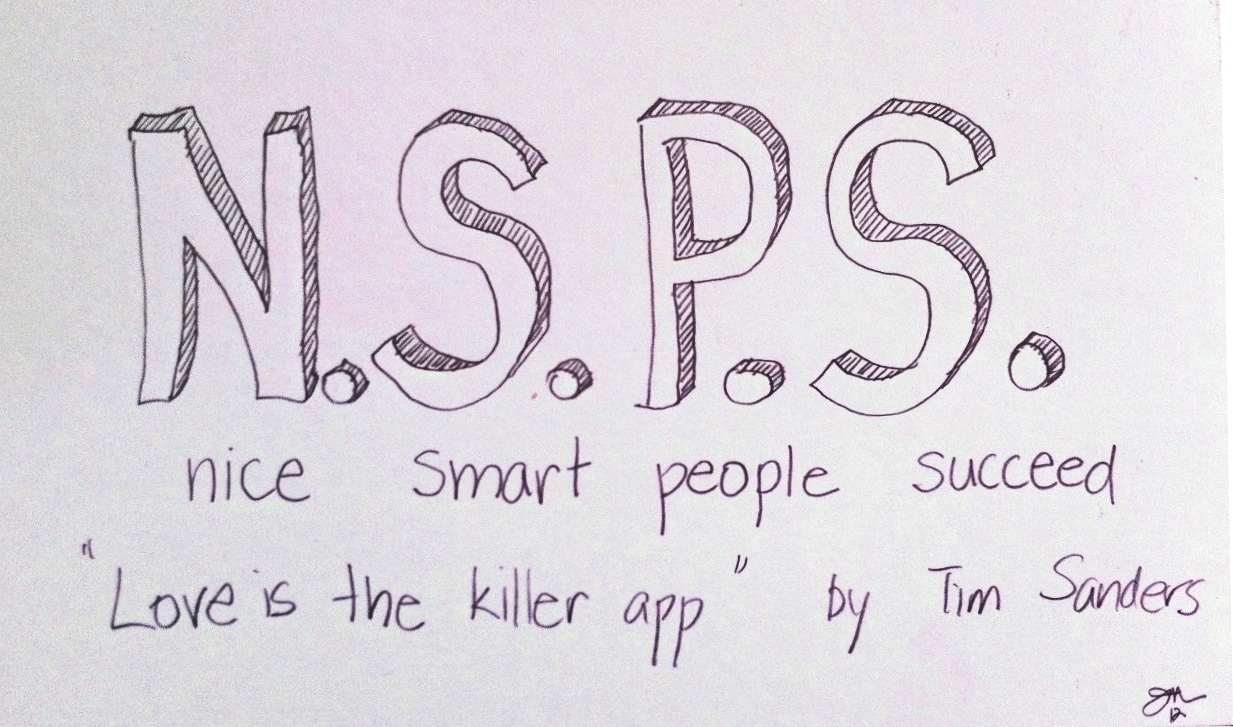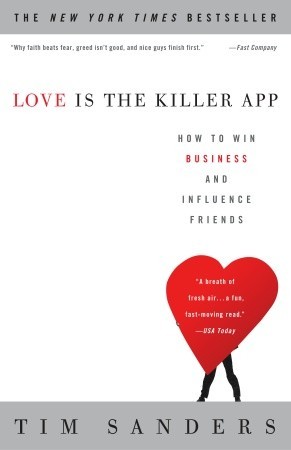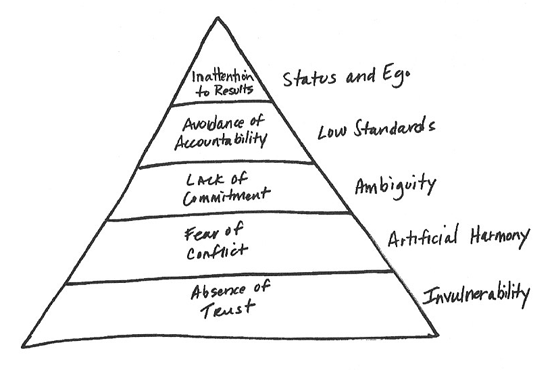Taking Your Foot Off the Gas Pedal or Sophie’s Choice
Don’t Leave Before You Leave
A few days ago I wrote a post about Facebook’s COO Sheryl Sandberg. I shared a link to her TED speech where she addresses the reasons why there are so few women at the top of their fields and gives advice to women reaching for success. One of her tips is “Don’t leave before you leave”. Sandberg talks about how women take their foot off the gas pedal, contemplating how to manage married lives and families they do not yet have, to the detriment of career advancement. She is right. While at least 50% of University grads are women, there is still a marked absence of women on corporate boards, as CEOs and in the political arena. At some point after graduating, women are leaning back.
Kiss My Tiara
Nine years ago, I read a book which I credit with teaching me my first important lessons in negotiating. ‘Kiss My Tiara: How to Rule the World as a Smartmouth Goddess” by Susan Jane Gilman is an extremely irreverent book, and one that some might find offensive. Looking back, I think Ms. Gilman shaped more than just my negotiating skills. The Introduction is titled “Forget Rules for Catching a Husband. How ’bout Rules for Catching a Life?”.
 Sophie’s Choice
Sophie’s Choice
“Too often, women are confronted with the social equivalent of Sophie’s choice. Which “children” are we willing to sacrifice: our hearts or our minds? our independence or the prospect of intimacy? our careers or our families?”. These are words echoed by Gilman in Part 1 of the book, titled “Mistress of Our Domain”. As a 37 year old woman who has never been married and never been pregnant, I can relate to having to make that choice. Not overtly, just subtly, little by little every day. While I can’t claim that I have driven my career hard, stayed at the table and kept my hand up 100% of the time, my professional pursuits have been a priority for me. I have always looked for opportunities to grow. And while I have been thrown a few career curve balls, I have been fortunate enough to do that. Younger women are often shocked to hear that I have always wanted to have a family. They assume that successful professional women make a cold-hearted decision to close the door on domestic possibilities.
Choose Wisely
It really isn’t fair that, generally speaking, babies need to come within a specified time frame. Reproductive years are limited. The biological clock is not a figment of women’s imaginations. It also isn’t fair that, as Sheryl Sandberg notes, likeability and success are negatively correlated for women, but positively correlated for men. What that means is that as men become more successful, both men and women like them more. However as women reach the top at work, the opposite occurs – both men and women find them less likeable. So what do you think that means for dating prospects? Successful women need love too, but let’s face it, it will be harder for them to find. This is why a woman who holds having a family in high priority may be lead to believe she has to take her foot off the gas pedal just to find a mate.
So who’s right? Gilman or Sandberg? Gilman is successful and single. With her book, she made lots of money encouraging women to be self-sufficient, while sneering at the fantasy most women have about going down the aisle in a frothy white gown. Sandberg on the other hand, is poised to become one of the wealthiest self-made women in the world, and is the twice married mother of two young children. She got to the top making day care runs and changing diapers. The difference is that (at least on her second try) she chose a partner who could be a partner, providing 50/50 support as she pursued her career goals too.
Women Can Have It All
In my opinion, and with the benefit of hindsight, Susan Gilman’s position is wrong. I drank her Kool-Aid almost ten years ago. I went through my late twenties and thirties believing that having a successful career meant “putting off” or even giving up on finding a mate and starting a family. Sandberg, as one of the most successful corporate executives on earth, knows that you can have it all. But you have to choose it. Whether you want a family, or a successful career, or both — and I suspect most women would choose both if they knew it was a real option — you will need to decide what you’re going after. As with anything else in life, you will then need to actively DO the things that will move you in the direction of your dreams. Sophie’s choice only exists if you let it. Don’t limit yourself to either/or. Choose wisely.
Today I’m Inspired by: Sheryl Sandberg

Sheryl Sandberg is the Chief Operating Officer at one of the most ubiquitous companies on the planet. Taking home over US$30 million in 2011, Sheryl is the highest paid person at Facebook. Second in command to founder and CEO, Mark Zuckerberg, Sheryl Sandberg developed the plan that took the social networking giant from 70 million users and almost no revenue to a user base of 850 million users and annual revenues of $3.7 billion in less than four years.
There aren’t that many role models for women in business. The self-made legends like Oprah and Martha Stewart stand out precisely because there are so few to name. Sheryl Sandberg first caught my interest when I came across an article on her, aptly titled ‘A Woman’s Place’, in The New Yorker last summer. I remember being tickled by her encounters with the not-so-subtle nuances of male domination in Silicon Valley and specifically at Google, where Sandberg once held a Vice President position, before joining Facebook. I could relate.
Poised to be an extremely wealthy woman with an expected windfall of US$1.6 billion when the Facebook IPO goes through, Sheryl Sandberg has not been an overnight success. She was at the top of her class all through high school, before heading to Harvard for an undergraduate degree in Economics. While there, she won the respect of economics professor Lawrence Summers. Summers would become her mentor, employing her as his research assistant when he joined the World Bank. She worked on health projects in India dealing with leprosy, AIDS, and blindness, before going on to attain an MBA from the prestigious Harvard Business School. She then joined Summers once again as his chief of staff, when he became the Deputy Treasury Secretary in the Clinton Administration.
Sheryl Sandberg now occupies the #5 spot on the Forbes World’s Most Powerful Women’s list, while balancing life as a wife and mother of two young children. It is clear that she is not only exceptionally intelligent and highly educated, but has worked hard and attracted at least one powerful mentor. However, these are not the only factors she credits for her success. In a recent TED talk, Sheryl addresses the reasons for the dearth of women in leadership positions saying, “women systematically underestimate their own abilities”. She offers three key pieces of advice for women striving to make it to the top of their professions:
1. Sit at the table – constantly reach for the opportunities out there.
2. Make sure your partner is a real partner – choose a mate who will be in there with you 50/50.
3. Don’t leave before you leave – don’t be so busy planning for when you have a family that you take your foot off the gas pedal long before you actually start.
When accomplished people talk about success, it’s a good idea to listen. I hope you will take the time to watch Sheryl Sandberg’s 15-minute talk which will inspire both men and women.
12 Nasty Illnesses You Can Prevent or Cure by Drinking More Water
A healthy body is made up of about 75% water. Every cell, organ and system in our bodies depends on water to work. We all know we should drink about eight glasses of water per day. Instead, we continue chugging on coffee, juice and sodas, while our bodies strain to function properly. Here are some particularly nasty conditions made worse by not drinking enough water.
1. Headaches
Dehydration is one of the most common causes of headaches in both adults and children. Our brains are up to 80% fluid and when we deprive our bodies of water, blood vessels narrow, and the supply of oxygen to the brain is cut off, sending off pain receptors in the lining of the skull.
2. Fatigue, Dizziness and Brain Fog
Dehydration causes enzymatic activity to slow down reducing the effectiveness of all systems in your body. As a result, you may feel light-headed, unable to concentrate and sleepy.
3. Susceptibility to Colds, Bronchitis and Flu
The mucous membranes of our respiratory systems depend on having enough water to stay moist. When these membranes are too dry, they fail to trap infection-causing germs in the air we breathe. About to catch a cold? Drink more water and let your body do what it is designed to!
4. Constipation
When your body is deprived of water, too much liquid may be extracted from your food in the colon to give to other parts of the body. This may result in constipation.
5. Digestive Disorders
When you don’t drink enough water, your body does not secrete digestive juices in the proper proportions. As a result, your body is unable to effectively digest and fully extract all the nutrients from your food.
6. High and Low Blood Pressure
When you don’t drink enough water, your body may take water from your blood, increasing its concentration. Your heart then has to work harder to get oxygen to your tissues. Arteries, veins and capillaries have to try to adjust the volume of blood being pumped and this may result in high or low blood pressure.
7. Weight Gain, Metabolic Syndrome and Obesity
Aside from the fact that thirst is often confused with hunger, dehydration causes our kidneys to stop functioning properly. The liver then has to help out the kidneys and as a result of that it slows down its rate of fat metabolism, causing us to gain weight.
8. Stomach Ulcers and Gastric Disorders
Some of the water we drink ends up as the mucous which protect membranes from being destroyed by the digestive juices in the stomach. Dehydration dries out these membranes and can give rise to inflammation, stomach pain and ulcers.
9. Premature Aging of the Skin
Your skin is the largest organ of the body. Skin cells, like all other cells, are made up largely of water. Dehydration causes skin to be dry, tight and flaky, making it less resilient and more prone to wrinkling and skin disorders.
10. High Cholesterol
When we don’t drink enough water, our blood becomes concentrated and acidic. Overly acidic blood can damage our arteries or even cause embolisms of the brain, kidneys and other organs. To try to reduce this damage, the body produces excess cholesterol. Water is the cheapest and most effective cholesterol lowering drug.
11. Urinary Tract Infections
Urinary tract infections flourish when protective mucous membranes are dry. Regular urination helps to keep the bladder and urinary tract free from infection.
12. Rheumatoid Arthritis
Cartilage in our joints protects the bones in the joints from rubbing together. Dehydration dries the cartilage, causing it to try to compensate by taking water from the blood. A damaging hormonal chain reaction is then set off leading to the pain and inflammation of rheumatoid arthritis.
Not having enough water causes so much bodily damage, that some health practitioners argue that it is the biggest health hazard facing modern populations. Some studies estimate that up to 75% of adults are chronically dehydrated.
Tips to Start Developing the Water Habit
 1. Always have water within reach. Fill up a one-liter bottle of water to take with you everywhere and refill it during the day.
1. Always have water within reach. Fill up a one-liter bottle of water to take with you everywhere and refill it during the day.
2. Start slowly. If you really don’t like water, start by diluting all sodas, juices and sweetened drinks with half water.
3. Reduce caffeine. Coffee, tea and colas are diuretics; they rid your body of water, and eliminate useful electrolytes.
4. Use a straw. You will drink a lot more without even trying.
5. Develop a routine: drink a glass of water as soon as you wake up in the morning, one before you go to work, one when you get home and another one right before bed.
6. Keep track of your progress or enlist a buddy. Reward yourself for drinking your eight glasses per day.
7. Add a slice of lemon or a squirt of lime juice for zest and flavor.
8. Get bubbly. Sparkling water or club soda are just as effective at hydrating your body, and some people (like me) find it even more enjoyable and refreshing.
Nice Smart People Succeed
 In January 2012 at the first weekly team meeting, I sat with my management team to outline plans for the new year ahead. Although this date did not coincide with our fiscal year end, the start of the calendar year always naturally brings with it an opportunity for resolutions and for renewal. I asked them to be brutally honest about the ways in which they felt I could improve my leadership skills. The ten-member management team jumped at the opportunity to offer candid, 360-degree feedback. I asked probing questions, took copious notes, and made a valiant effort to keep my pride under complete submission. Most of the team leaders left that meeting feeling refreshed, I left bloodied, bruised and limping.
In January 2012 at the first weekly team meeting, I sat with my management team to outline plans for the new year ahead. Although this date did not coincide with our fiscal year end, the start of the calendar year always naturally brings with it an opportunity for resolutions and for renewal. I asked them to be brutally honest about the ways in which they felt I could improve my leadership skills. The ten-member management team jumped at the opportunity to offer candid, 360-degree feedback. I asked probing questions, took copious notes, and made a valiant effort to keep my pride under complete submission. Most of the team leaders left that meeting feeling refreshed, I left bloodied, bruised and limping.
Receiving an unfiltered critique from those who worked with me daily got me thinking about the difference between being liked and being respected as a leader, and the age old question of which one is more important. In my quest for answers, I came across and read the book,“Love Is the Killer App” by Tim Sanders. While many bosses and managers choose to wield power based on fear, after reading that book, I came to conclude that leaders should actively strive to be both liked and respected.
Published in 2002, this book could have been subtitled “How to Succeed in Business by Being Smarter and Nicer”. Tim Sanders writes that in the new economy people will be valued for their knowledge and their network and not seniority or pedigree. He argues that the only way to advance in today’s experience economy is by being a “love cat”, and intelligently and sensibly sharing your intangibles.
The intangibles Tim Sanders asks that we share are our knowledge, our network and our compassion:
Share Your Knowledge.
First, we have to put in the work necessary to accumulate enough knowledge to share, and add value to others. Books and audiobooks are the best way to get this knowledge. The author encourages using most of our free time for reading – making a commitment to review as many as one or two books per week. Tim advises that we take notes describing the book’s Big Thought, supporting ideas, and on its overall value. We can then share the knowledge by prescribing books to our contacts the way a doctor would prescribe medications to patients.
Share Your Network.
Tim advises that we become collectors of people – establishing positive and memorable interactions with as many contacts as possible, to be able to later match them with other contacts. The more positive dealings you have had with people, the more likely you are to be a winner in business. You will have the largest networks, the most powerful connections, and the ability to call in their reserves at to help provide solutions for other connections when they really need it.
Share Your Compassion.
Let people know that you care. By expressing your compassion, you create an experience that people remember. There is a tremendous opportunity for your compassion to make a difference in how people view you, and how they view themselves, because we continue to develop emotionally and spiritually throughout our entire lives. Compassion combined with knowledge and network is the way we win hearts and influence business today.
The advantages of striving to become both liked and respected:
 1. You build an outstanding brand as a person.
1. You build an outstanding brand as a person.
When you take the time to build a brand, people will trust you, like you and pursue you. Be distinct or become extinct.
2. You create an experience.
The more you read, the more you know and the more fun, interesting and valuable knowledge you have to pass along. Smart companies today are using their services as props and their services as a stage to deliver a compelling experiences.
3. You have access to people’s attention.
Biz-Love helps you give others good return on attention (ROA). It means being able to supply creativity, and help give them a foundation for their business practice.
4. You harness the power of positive presumption.
People tend to presume that a proposal is a bad idea until proven otherwise. Being a love cat arms you with the trust and respect of others, so that they know we have their interests at heart.
5. You receive exceptional feedback.
Love cats have a huge advantage because relationships don’t end when the business transactions end. Biz love partners know you are genuinely interested in their success.
6. You gain personal satisfaction.
People no longer feel secure based on their length of time with a company, and find themselves not living up to their own expectations. Love cats enjoy higher levels of security because there is always genuine reciprocity available by building intangibles.
End note: If you are a developing leader who wants to get a jump-start on building a valuable knowledge base and a wide network of contacts, if you want to learn how share compassion in business, then I urge you to read “Love Is the Killer App“.
10 Great Reasons to Start Walking Regularly
 Inactivity is a silent killer. Using your leisure time to just sit around watching TV, surfing the Internet and playing video games can get you on the fast track to weight gain, obesity, and chronic disease. I recommend walking as a way to make moving your body a lifelong habit; it is easy, cheap and fun! Here are ten great reasons to take a walk:
Inactivity is a silent killer. Using your leisure time to just sit around watching TV, surfing the Internet and playing video games can get you on the fast track to weight gain, obesity, and chronic disease. I recommend walking as a way to make moving your body a lifelong habit; it is easy, cheap and fun! Here are ten great reasons to take a walk:
1. Improve Your Mood
Physical activity stimulates brain activity and causes your body to produce happy brain chemicals called endorphins. Just walking 20 minutes per day can help relieve stress, anxiety, and even mild depression. You will feel more peaceful and happy, and have improved self-esteem.
2. Boost Your Energy
Walking can also improve your energy levels. Physical activity enables your lungs and cardiovascular system to work more efficiently and deliver oxygen to all your tissues. Over time, your heart will get stronger and you will have more energy to do everything else in life.
3. Look Better
Regular walking will improve your muscle strength, and make your arms, legs look more toned. Walking will improve your posture and help give you a trim waistline and a more attractive rear view.
4. Improve Your Sex Life
Walking will make you feel sexier, too! Regular physical activity can lead to enhanced sexual desire and satisfaction in women. Men who walk regularly will benefit from better circulation, and have fewer problems with erectile dysfunction.
5. Fight Off Disease
People who walk regularly get fewer colds, because exercise strengthens your immune system. Walking daily lowers blood pressure, lessens joint pressure, and significantly decreases your risk of diabetes and stroke as you get older. Women who walk regularly after being diagnosed with breast cancer have a 60% higher survival rate.
6. Stay Younger Longer
Just thirty minutes of daily physical activity has been proven to extend longevity. Walking on a daily basis helps prevent or delay the onset of age-related conditions such as osteoarthritis, memory decline, dementia and Alzheimer’s disease.
7. Get Smarter
Walking is the number one way to keep your brain healthy. Walking stimulates the blood flow, and provides oxygen to the brain, helping you to think more clearly. It can improve recollection, reverse brain deterioration and improve overall brain function.
8. Create Quality Time
Developing the habit of walking creates blocks of quality time. You can listen to music or audiobooks and enjoy the outdoors alone, or connect with your kids, parents or a partner. Talking about your day or your shared goals and plans while you walk will strengthen your relationships immeasurably.
9. Make Friends
Exploring your neighborhood, is a great way to get to know your neighbors and make new friends. You will feel more at ease where you live, and overcome feelings of loneliness or isolation. Walking is also a great way to ease into a new friendship or relationship in a low pressure setting.
10. Sleep Better
If you struggle to fall asleep, staying up late watching TV only to wake up foggy in the morning, regular exercise can help. Walking every day can help you fall asleep faster and deepen your sleep helping you to feel more rested and rejuvenated the next morning.
Start today!
Start by walking just 5 minutes per day to avoid stiff sore muscles or exertion. Walk as slowly as you need to, and gradually improve the length of your walks and pace each week. Set goals, track your progress and reward yourself. The more you walk, the better you will feel.
5 Ways to Make Eating Healthier a Habit
 Half way through the first month of each new year, many of the well-meaning resolutions we make to eat healthier and lose weight have all but faded away. We all want better lives, but changing ourselves requires changing our bad habits, and developing new good ones.
Half way through the first month of each new year, many of the well-meaning resolutions we make to eat healthier and lose weight have all but faded away. We all want better lives, but changing ourselves requires changing our bad habits, and developing new good ones.
Can You Pinch an Inch?
Stand in front of the mirror. Can you pinch an inch around your waist? Then you, like 1.5 billion people on the planet today, are probably overweight. Carrying around extra pounds can interfere with our self-esteem, drain our energy and cut our personal effectiveness. Getting lean will decrease your risk of heart disease, high blood pressure and diabetes.
Here are five specific things you can do to discipline yourself into developing a habit that will translate into better health and a slimmer waistline in the future:
1. Eat and Drink Mindfully
If you’re not paying attention to what you’re putting into your body, how will you know if you’re really eating healthily? Nourishing your body should be an experience you take the time to enjoy. When you eat and drink, take the time to do so mindfully. Instead of eating or drinking in a rush, savor each sip and bite. Chew your food properly and savor the flavors. Consider taking the time to mindfully prepare your own meals instead of settling for fast food.
Click on to MyFitnessPal.com and set up an account, or download the smart phone app. Record all your meals, snacks and drinks every day for a week. This will give you an understanding of portion sizes, calorie content and nutritional information of the foods you eat every day. You will be surprised to find out exactly what you’re putting into your body.
2. Drink Water Instead of Sodas and Juice
When it comes to putting on extra pounds, sugar is our number one enemy. Liquid sugar is the sneakiest culprit. Just drinking one 16 oz bottle of Coke per day can translate into 20 extra pounds of fat in just one year. Start saying no to sweetened beverages. Instead of drinking sodas, juices and sports drinks, fill up a one liter bottle of water every morning and take it with you. Refill it once during the day. Do it for 30 days and see how you feel.
3. Cut out the Starch
There is no such thing as an essential carbohydrate. Our bodies do not know the difference between a spoonful of rice and a lollipop –they both get converted into glucose in the bloodstream. Eat less rice, pasta and potatoes; share your dessert, trade your morning cereal for an egg or sardines, give up bread and have tomatoes or cucumbers instead. Eat more healthy protein at meals to end snacking. Cut down on eating unhealthy carbohydrates and stick with it for 30 days. You will feel better and weigh less.
4. Set a Goal and Write It Down
Get a physical done. Find out what your cholesterol and triglyceride levels are. Calculate your body mass index (BMI) using this BMI Calculator. Find out if you’re in the healthy range and how you compare to other men or women of your age. Set a goal for yourself and a time frame you want to do it in. It could be to lose two inches off your waist, to fit into your favorite pair of jeans again, or to get into the healthy BMI range, but write it down and set yourself a deadline.
5. Weigh Yourself Once per Week
Willful ignorance keeps many of us from realizing that we are gaining weight and becoming unhealthy. We dread getting on the scale, because deep down, we know that we will not like what we see. Make it a habit to weigh yourself at least once per week, if not every morning. Keep track of your progress by entering your weight on MyFitnessPal.
A Brand New Year
A Brand New Year
A brand new year stretches before us, an uncertain road not yet traveled. Traditionally a period of festivity and reflection, the close of each year takes us tumbling through a mishmash of memories – twelve months worth of joys and sorrows, lucky breaks and challenges, resolutions and regrets.
We giddily relive the delicious moments of dancing until dawn, the kiss that took our breath away. Reminiscing on the joy weddings and the arrival of new family members brings the comforting warmth of nostalgia. The exhilaration of new projects and challenges – plans for a new home, a promotion, college acceptance – inspires us with a sense of purposeful anticipation, yearning and optimism for the days ahead.
In contrast, many of us find ourselves facing the New Year with trepidation; we feel weighed down by the not so awe-inspiring occurrences of the year just passed. Our eyes cloud with tears as we reflect on the loss of a loved one gone too soon. The insecurity of not having a stable income, or the pain of living with a critical illness may leave our stomachs in knots. We find ourselves plummeting into despair again and again, as we recall the feelings of loneliness, guilt and betrayal caused by broken friendships and relationships. There is inevitably a string of goals not met, bills not paid, pounds not lost, addictions not conquered and exams not passed. A general sense of foreboding hangs as thickly as a dark fog – a never-ending news of war and famine, recession, political turmoil and protests worldwide.
The Search for Meaning

Viktor Frankl was an Austrian holocaust survivor. In his best-selling book ‘Man’s Search for Meaning’, he details the experiences of daily life in Nazi death camps from the unique perspective of a neurologist and psychiatrist. He lost everything, his possessions, his wife and his family, and yet concluded that even in the circumstances of the worst kind of suffering imaginable, it is possible for life to have meaning. Based on his experience, the differentiating factor between the people who died in the Nazi concentration camps and those who survived, was their attitude. Viktor Frankl’s writings challenge us to adopt an attitude of responsibility, which focuses on the future. He asks us to ask ourselves what we will offer to life, instead of brooding over what life might owe to us.
Our Lives Only Become Rich with Gratitude
The most important lesson I plan on taking into the future can be expressed in a single word – gratitude. Gratitude consists of being fully aware of your current circumstances and being able to recognize the good that exists, no matter how small.
““In ordinary life we hardly realize that we receive a great deal more than we give, and that it is only with gratitude that life becomes rich.” ― Dietrich Bonhoeffer
As we stand at the threshold of a new year, take a moment to think about how much you have been given. It is mind-boggling to try to fathom the effort that has gone into giving us the lives we enjoy, simply by virtue of having been born in the 20th century. Only a genius can fully understand the intricate science and technology used to develop and manufacture the laptop or smart phone on which you are reading this post. Consider the time and effort that went into making the clothes you are wearing now, the last meal that you ate and the transportation you take each day. Could you reproduce it on your own? Reflect on all the brilliant minds over thousands of years that devoted themselves to inventing and perfecting all the luxuries we enjoy today. Countless men and women cared enough to make their lives count so that we can all enjoy better standards of living today. Life has given us so much more than we can ever return to it.
“Gratitude unlocks the fullness of life. It turns what we have into enough, and more. It turns denial into acceptance, chaos to order, confusion to clarity. It can turn a meal into a feast, a house into a home, a stranger into a friend. Gratitude makes sense of our past, brings peace for today, and creates a vision for tomorrow.” – Melody Beattie
I challenge you to make this your year of gratitude:
- Commit to spending just a few minutes each day quietly reflecting on the good things in your life.
- All day long, make a habit of noticing all the good around you, the people, companies and technologies that serve you.
- Develop the habit of consciously feeling grateful, all the gifts life has presented to you.
- Express your appreciation. Say “thank you” as often as possible, to as many people as possible.
Start Something that Matters
Right now, instead of focusing on the wrong that may have been done to you, focus on all the gifts you have been given. Instead of focusing on what you haven’t done in the past, focus on what you can do in the future. Instead of becoming overwhelmed by negative experiences, think of ways to create positive experiences for yourself and others. Banish apathy and fear. Make a decision to do all that you can do, and be the best that you can be. Take responsibility for the good that you can create in the world.
Below is a link to David Bowden’s performance of his poem titled “Start Something that Matters”, inspired by the eponymous book authored by the founder of the TOMS shoe company. I found it uplifting, and I hope you do too.
Paint all you painters, paint something that captures.
Write all you writers, write something that answers.
Build all you builders, build something that shelters.
Start all you starters, start something that matters.
May this be your BEST year EVER!
The Ten Commandments for Business Failure
Why is it that some brands fail, while others stand the test of time?
“In the 1980’s alone 230 companies disappeared from the Fortune 500. In fact, only sixteen of the 100 largest companies that were around in the early 1900’s are still with us.”These words are from Donald R. Keough’s 2008 book ‘The Ten Commandments for Business Failure‘.
Coke is one of those brands. Introduced in 1886, Whether you like Coke or not, it’s difficult to deny the brand’s, ubiquity, staying power and success through the years. Coke is recognized at one of today’s most valuable brands.
You may never have heard of Donald Keough, but he is at least partially responsible for the The Coca-Cola Company’s longevity. Mr. Keough was first associated with the company back in 1950, and still sits on its board 65 years later. He has served as the company’s President and Chief Operating Officer and retired from his position as Chairman of the Board of Coca-Cola Enterprises in 1993.
Donald Keough has also served on boards of several other distinguished companies including The Washington Post, H.J. Heinz Company and Berkshire Hathaway. He holds five honorary doctorates, including ones from Trinity College in Dublin, Ireland and his alma mater the University of Notre Dame.
Legendary investor and one of the richest men in the world, Warren Buffet, documented his resounding endorsement in the foreword. “It has been an article of faith for me that I should always try to hang out with people who are better than I. There is no question that by doing so, you move yourself up. It worked for me in marriage, and it’s worked for me with Don Keough.” As if any further endorsement were necessary, Microsoft co-founder, Bill Gates, and Jack Welch who led GE for 20 years as Chairman and CEO also sanctioned the book on its front cover.
In a charming and often self-deprecating style, the author takes us through the tongue-in-cheek Ten Commandments, for Failure, which are as follows:
1. Quit Taking Risks
Creating profits in the long-term requires innovation in the now. Business leaders are paid to “be discontented”, to take the calculated risks that will ensure the company’s success in the future. “When you’re comfortable, the temptation to quit taking risks is so great, it’s almost irresistible”, but it is the number one way to seal your fate and fail. Mistakes and miscalculations, even very costly ones, are simply the price of staying in business.
2. Be Inflexible
The “if it ain’t broke, don’t fix it” mentality is the second best way to secure the demise of a business. There is no one formula for success that will continue to work always; leaders must constantly challenge themselves to change. “Flexibility is a continual deeply thoughtful process of examining situations and when warranted, quickly adapting to changing circumstances.” Darwin’s concept natural selection is applicable not just to organic species, but to the survival of businesses as well.
3. Isolate Yourself
Staying in touch with customers, distributors, managers and staff is essential to continued growth and success. It is temptingly easy to physically isolate yourself from “distractions” in the comfort of leather sofas and plush carpets in corner offices on high floors guarded by layers of Personal Assistants. Creating your own “executive bubble” is a great way to be the last to know when anything is going wrong. Answer your own phone, make your own coffee, know the names of your people – walk around and find out how they are doing and what the Company needs to be doing better.
4. Assume Infallibility
Another great way to fail successfully is to never ever admit a problem or a mistake. Develop the artful skill of finger-pointing. Blame external forces such as currency fluctuations or the unusually active hurricane season. Cover up mistakes for as long as possible without admitting that anything is going wrong. It’s best to wait until there is a full-blown crisis and then say “mistakes were made…” (but not by me).
5. Play the Game Close to the Foul Line
When you consistently “play it close to the foul line”, your employers will not trust you, and neither will your customers. If you achieve success by destroying your principles in the process, it will not last. Build a reputation for doing the right thing – to be forthright, honest and fair. Build trust. Honor and decency are virtues which never become outdated.
6. Don’t Take Time to Think
“Thought is hard” ~Goethe. In many ways technology often adds to the complexity of life without providing appreciable advantages. With the steady stream of data constantly bombarding us, it is appealing to believe that being busy is the same as being effective. Base decisions on careful evaluation. Objectively analyze mistakes; they are a powerful opportunity to see what went wrong. Making time to think is essential for success.
7. Put All Your Faith in Experts and Outside Consultants
“It is better to know some of the questions than all of the answers.” -James Thurber. Putting too much faith in outside expertise can lead to disastrous consequences. Quite often, managers insecure in their authority blame restructuring, layoffs and other unpleasant decisions on plans drawn up by outside experts. This is just another cowardly way of passing the buck. Good business leaders take responsibility for the future of their businesses, they don’t farm out important strategy decisions to third parties.
8. Love Your Bureaucracy
If you want fail spectacularly, put administrative concerns ahead of everything else. Chains of command, paper pushing, and general red tape can lead to endemic dysfunction. Bureaucracy within organizations causes responsibility to become so diluted that the managers become incapable of making objective decisions. Action becomes impossible. In a crisis, the results can be catastrophic.
9. Send Mixed Messages
Communication does not occur unless the message is both heard and understood. For example, rewarding employees who have not met performance targets sends the message that the targets really don’t matter. Be consistent in the message you send. Apply accountability and follow through with the consequences.
10. Be Afraid of the Future
If you want to paralyze your business, start proceeding with caution all the time, allow pessimism to thrive. Unquenchable optimism is the spirit the engenders achievement and success. Move boldly ahead – approach the future with optimism – especially when the circumstances are unfavorable.
11. Lose Your Passion for Work, for Life
To fail, just continue to set low expectations for yourself and everyone around you; keep saying “that’s good enough”, or “that’s not my job”. All achievement requires passion. Work is hard, but it is worth the effort to those who are convinced that they are capable of being better. It is the strong desire to do better and solve problems that should drive your passion to work harder. Successful people perform at a higher level, just for the satisfaction of doing it. Passion can be cultivated; form a strong emotional connection with whatever you are doing, and never stop.
In many ways, Donald Keough’s book is a story of failure, with lively anecdotes illustrating each commandment, the author details the perilous mistakes of Xerox, IBM, Ford and especially Coke. Companies don’t fail, people do.
It is also a tale of success. Great leaders don’t allow themselves to be dragged down by failure, they recognize the mistake, admit their errors and find a way to move on. This amazing little books gives us a glimpse into how a product established in 1886 is still with us today as one of the strongest and most loved brands in the world. It is as refreshing and stimulating as an ice-cold glass of Coke Zero on a hot summer day. I highly recommend it.
Get Busy Living

Millions of people across the globe have been inspired by the 1994 motion picture ‘The Shawshank Redemption’. The film stars Tim Robbins, as Andy Dufresne, and Morgan Freeman, who also brilliantly narrates the movie. Andy Dufresne is sentenced to two consecutive life sentences in Shawshank Prison, for murders he did not commit. The story spans the two decades of his imprisonment and friendship with Morgan Freeman’s character, Ellis “Red” Redding. It is one of my all time favorite films.
The Company I lead is only a few years old. Each line manager has been employed on average for about a year. I have been at the helm for several months. This week, the founder of the company, an intrepid entrepreneur, spent a few minutes giving an informal address to the leadership team.
He took some time to share his story — highlights of his business history and personal background. He related the valuable life lessons he learned as a short guy playing the rough sport of rugby and the importance of pulling your weight on a team. In his typical hoarse tone, he then imparted one of his fundamental business philosophies. “If you’re not growing, you’re on your way out. There is no such thing as an organization being mature and maintaining the status quo.”
This statement is undeniably true, and yet easy to forget. Businesses which are unable over time to get more customers and make more revenues and profits, eventually go into decline. As costs rise and more attractive products and services enter the marketplace, they tend to become less and less profitable, and ultimately fail. Some companies die a slow organic death. Other organizations topple like a Jenga puzzle when the wrong block is removed.
At the moment, my job feels like the most challenging task I have ever undertaken. I am fully aware that a company is most vulnerable during its first few years. Each day I summon the courage to act boldly, even though I’m not sure that success will come. I banish fear and focus on the goals, knowing that results are the only true measure of leadership. I strive each day to keep growing.
This is what every human being is meant to do. Deep within each of us is the strength to lay it all on the line and believe in our own determination to make our dreams come true. Some people display these qualities to a heightened degree — many athletes and entrepreneurs, for example. But, it is perfectly natural. Deep down, we know this.
We love ‘The Shawshank Redemption’ because it tells the story of life, of struggle and vanquish over incredible adversity, of living and helping others, even where there is no freedom. Deep down we believe in hope and friendship and trust and love. We know that working hard pays off. We know that without something to strive for, we never achieve success.
Accomplishing anything worthwhile in business or in life will involve some form of struggle. For Andy, it was 20 years in the slammer, complete with the requisite gang rapes. But all the while he had hope – he lived outside and above the high walls of the prison. Resistance must be overcome in order for growth to occur. This is what life is all about. Twenty years of tunneling, and three pin-up girls later through a “river of sh*t” to come out “clean on the other side”. This is remarkable beauty and power of the human spirit.
Andy Dufresne is a fictional character, but each one of us faces our own personal set of challenges and obstacles, our own Shawshank Prison. Sometimes we allow ourselves to be paralyzed by fear, or we allow ourselves to rationalize that the effort is not worth the reward. We are wrong. Get up and grow. Grow into the person you are meant to become. Live up to your potential. Have as many experiences as you can. Make mistakes and learn from them. Build your character. Try for that promotion or salary increase. Meet those new friends. Travel to that place you’ve dreamed of seeing. Read that book. Sign up for that class. Call your mother. Forgive your father. Get busy living or get busy dying.
If you’ve never watched the movie, I highly recommend that you do. Here’s the trailer:
10 Little Things I’ve Learned as a Female Executive
Here are some of the lessons I’ve learned over the years, and continue to learn every day.
 1. Work Hard
1. Work Hard
There really is no substitute for hard work. The law of sowing and reaping and Newton’s third law hold true in nature, and are equally applicable to everyday life. Don’t expect to ever get more than you put in. Don’t expect to ever be paid more than you deserve. And if it happens, don’t expect it to last long. Compete only with yourself; strive every day to be better than you were the day before.
2. If You Don’t Ask, the Answer is Always “No”
One of the main reasons some women succeed at landing the tough assignments and earning salaries comparable to those of their male counterparts is because they’ve learned to speak up. Life is not fair and neither is the work place. Take an active role in making sure you convert your diligence into rewards — this will not happen automatically. Ask how you’re performing, ask for more responsibility, let others know when you’re being treated unfairly and toot your own horn.
3. Don’t Scratch with the Chickens
Choosing the wrong people to keep company with at work can really drag you down. Gossips are great at identifying who did what wrong, but don’t put any energy into making things right. Similarly, complainers cast blame, but take no personal responsibility. Both consistently expect the worse and both tend to consistently get the worse. When you’ve suffered a set-back, take it in your stride and move on. It is a mistake to whine or bitterly complaining to whoever will listen. Hone your skills and keep your eyes peeled for the next available opportunity. Prepare to soar with the eagles instead.
4. Flaunt Your Skills, Not Your Sexuality
Make the office a strictly “no-flirting” zone. Being inconsistent on this point may land you in compromising situations that may be difficult for you to recover from. On the other hand, celebrate the fact that you’re a woman. There is no need to forgo lipstick or try to “be one of the boys” to be taken seriously. Maintain a balance; people will find it easier to listen to what you’re saying if they aren’t being blinded by your fluorescent blue eyeshadow.
5. Lighten Up
Take the time to get to know those around you. Don’t be afraid to share a laugh or have fun at work. Embrace the concept of LBWA – leading by walking around. When people like and connect with you as an individual, they will be much more likely to support you when you really need it.
6. You Can’t Fix Everything
Being a perfectionist is an incredible waste of time and energy. Get your priorities straight, and make a habit of always working on your most important tasks first. Make a list every day. If you start your day tackling the easy stuff and then reacting to every email that pops into your in-box, you will find yourself both inefficient and over-stressed. Always put first things first, and learn to delegate or drop the things that aren’t worth your immediate time and energy.
7. Trust Your Passion
The more you enjoy what you do, the greater the likelihood of being successful and enjoying that success. Figure out what you enjoy and find ways to do more of the things you love in your job. It won’t necessarily happen overnight, but create a plan and work with it.
8. Make Time For You
Make time to enjoy your life, and be happy and healthy. Cultivate interests outside of work – stimulate all your senses, eat well and move your body. Most of all, spend quality time with your friends and family.
9. It’s Okay to Cry
Frustrations will come, and so will the tears. When you break down emotionally on the job, it leaves people wondering if you can handle the task you’ve been entrusted with. Crying in front of bosses and coworkers will make you to lose credibility fast. Be tough on the job and save the tears for the drive home.
10. Never Stop Learning
My boss shared this gem with me just recently in a rare one-on-one moment. I embrace learning by reading voraciously on subjects that interest me. What he was talking about was learning the art of extracting ideas and solutions from everyone around. Asking others “what would you do?” is not a sign of weakness, it is a sign of real strength. It could make the difference between success and failure, particularly in really challenging times.
The Five Dysfunctions of a Team

In theory, we all know the value of teamwork. In childhood, grandma admonished that “many hands make light work”. Henry Ford provided sage advice, saying “if everyone is moving forward together, then success takes care of itself”. We have all seen the glossy motivational posters. So why is it so difficult to build strong and effective teams?
Two years ago, when I became a General Manager for the first time, one of the lessons I knew I had to learn fast was how to get the most out of my new team of managers and supervisors. Having spent almost my entire career in audit, accounting and finance positions, leading a multi-disciplinary team was new to me.
I recently completed the audio version of my second book by Patrick Lencioni. “The Five Dysfunctions of a Team: A Leadership Fable” struck a chord with me. In a cleverly woven leadership fable, Lencioni provides insight into the reasons why so many teams fail. The author shows how ineffective teams create apathy and ambiguity that will eventually cripple an organization.
Here are the natural, but dangerous pitfalls encountered by a team:

1. Absence of Trust
Where there is an absence of trust in a team, members don’t get to know each other well. They are afraid to be vulnerable or admit their weaknesses or mistakes. Because the team members are constantly in defense mode, no one asks for help.
2. Fear of Conflict
Absence of trust sets the tone for a team’s inability to engage in unfiltered conflict around ideas. Effective teams disagree with each other. Instead of running their thoughts through a political filter before being spoken, they say “I disagree with you, here are the reasons why”. Veiled discussions, guarded comments, sarcasm and silence do not achieve the results that active disagreement and productive debate can yield. When team members don’t battle it out passionately, the decisions they reach will inevitably not accurately reflect the shared goals and values of the organization.
3. Lack of Commitment
Wherever there is a lack of healthy conflict then the third dysfunction is almost assured. Where there has been no “weigh-in” on matters, there is likely to be little true “buy-in” for decisions made. Team members may feign agreement during meetings, but haven’t truly given their commitment to decisions and plans of action.
4. Avoidance of Accountability
A lack of commitment to clearly defined plan of action leads to team members being hesitant to hold their peers accountable. No one gets called out for actions and behaviors that are counter-productive to the good of the team. When no one gets called out, everyone saves face, and the team loses.
5. Inattention to Results
Avoidance of accountability has only one natural conclusion. When team members put their own – such as career advancement, or the needs of their individual departments ahead of the collective goals of the team, then results suffer.
In the last two years, my leadership style has developed into one that is somewhat unconventional. I strive to create an environment that encourages vulnerability. Everyone on the team knows they have a say. I encourage debate and even passionate emotional debate. Conflict is natural and healthy. Without it, there will be no growth because the status quo is never really challenged. Arguing over concepts and ideas is not to be confused with personal mean-spirited attacks and destructive politics. In a good team, everyone knows the difference. It takes discipline and commitment to acquire that level of knowledge, but the results are truly worth it.
End note: If you are a leader who relies on a dogmatic management style, or if you are part of a team that constantly walks on eggshells trying not to offend each other, then I would like to challenge you to read Patrick Lencioni’s The Five Dysfunctions of a Team: A Leadership Fable. Learning to lead in a way that gets the most from your team will yield more positive results than you can imagine.








